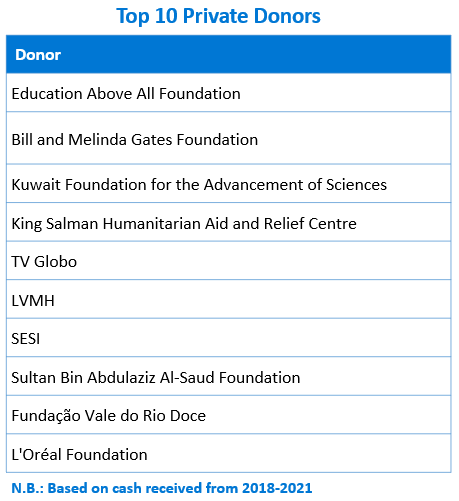Since UNESCO’s priorities are increasingly aligned with the concerns of civil society, new ways and opportunities, need to be identified of exchanging ideas and knowledge with key UNESCO constituencies like young people, cities, and business. Creating synergies among cities, youth and business can also lead to effective multi-stakeholder partnerships.
business
UNESCO cooperates with a wide variety of Private Sector partners such as business enterprises, including small and medium-size firms, national, international and multinational corporations, philanthropic and corporate foundations, financial institutions and private individuals to carry out its vast mandate.
Current partnerships with the Private Sector range from fundraising to strategic partnerships. UNESCO is an official partner in a large number of collaborative relationships with the Private Sector intervening in various degrees from being involved in programme delivery arrangements, providing policy guidance, technical assistance and expertise, to playing a strong role in promoting its core ethical and programmatic values through advocacy and awareness-raising.
Private Partnership Resources
Contact
For more information contact Private-partners@unesco.org

Cities
Cities have a key role to play in translating and implementing the SDGs at the local level. They are incubators for cultural, social, economic and environmental development through experimentation, anticipating trends and exploring models of technical, social and economic innovation. However, it is also in cities that discrimination, exclusion and inequality persist most strongly. Through its engagement with networks and programmes of cities, UNESCO is already working for regional and local development strategies and carrying out projects in and with cities.
Young people
UNESCO: by youth, with youth, for youth
UNESCO is mainstreaming youth engagement to maximize opportunities for working with young people beyond youth-related themes and activities. Young people should be enabled to take an active role in shaping UNESCO programmes and policies. In line with UNESCO’s Operational Strategy on Youth 2014-2021, UNESCO continues applying methodologies and mechanisms for Member States to engage youth in policy and programme design and delivery, particularly through youth organizations and young individuals. UNESCO’s work on youth including with national governments will also continue to promote youth-lead action, strengthen the capacities of young leaders and youth-led organization, as well as enable programmatic partnerships, particularly at country level.


